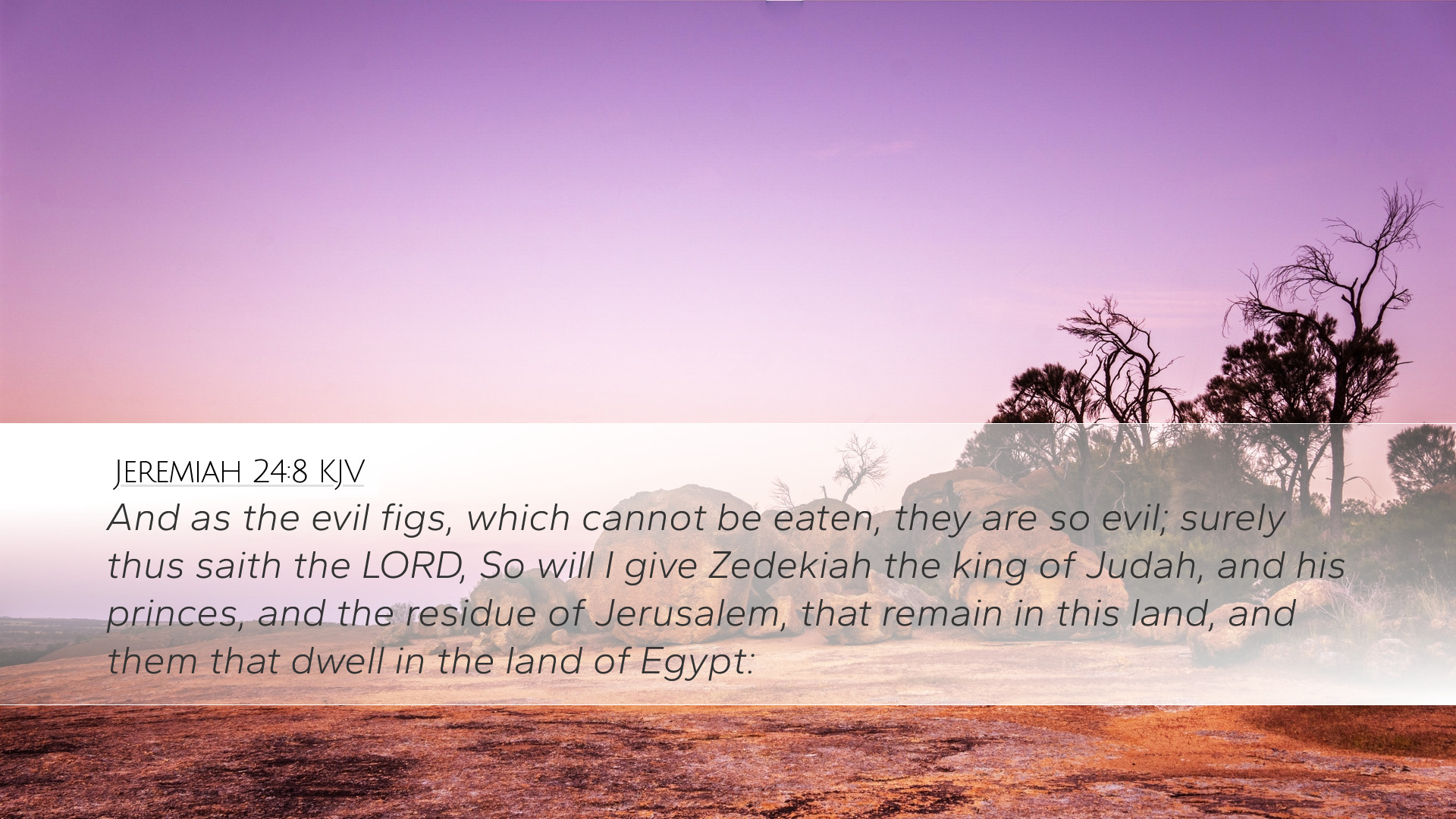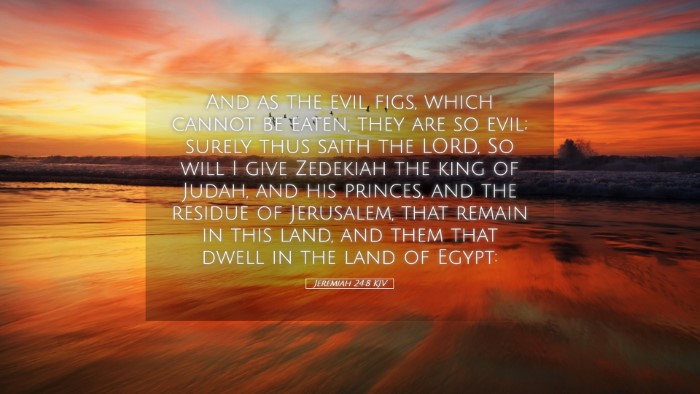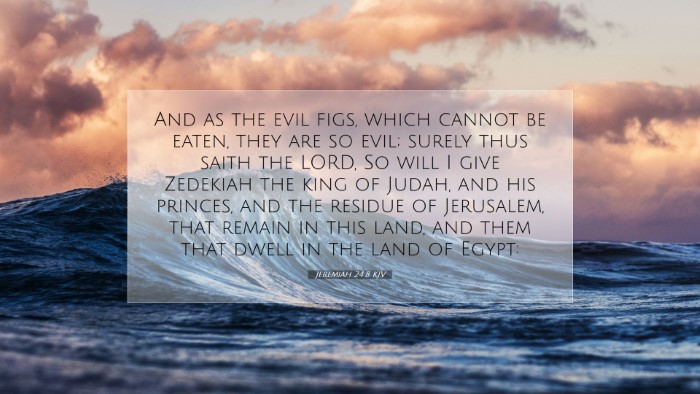Commentary on Jeremiah 24:8
Jeremiah 24:8 states: "And as the evil figs, which cannot be eaten, they are so evil; surely thus saith the Lord, So will I give Zedekiah the king of Judah, and his princes, and the residue of Jerusalem, that remain in this land, and them that dwell in the land of Egypt:"
Introduction
This verse is part of a larger prophetic metaphor using the imagery of figs to illustrate God's future plans for the people of Judah. The two baskets of figs represent the diverging paths of the exiled people and those who remained in Jerusalem. Through this metaphor, Jeremiah communicates critical theological and eschatological insights regarding divine judgment and redemption.
Commentary Insights
1. Contextual Analysis
The contextual background of Jeremiah 24 sets the stage for understanding the prophetic message conveyed through the fig metaphor. Albert Barnes notes that the prophecy comes during a tumultuous time for Judah, specifically after the Babylonian siege. God distinguishes between those taken into exile and those left behind, highlighting divergent destinies tied to their faithfulness.
2. The Metaphor of Figs
Matthew Henry explains that the figs symbolize God's people, with good figs representing those who were taken captive to Babylon and evil figs representing those who remained in Jerusalem. The good figs symbolize a remnant chosen for restoration, while the evil figs refer to the leaders and people whose hearts were hardened against God’s call.
- Good Figs: Representing those who would survive calamity and be restored (Jeremiah 24:5). They signify hope in God's plan for rejuvenation and spiritual renewal.
- Evil Figs: Indicating those who clung to their rebellion and security in Jerusalem despite its impending doom. Their fate is one of continuing exile both physically and spiritually.
3. Theological Implications
Adam Clarke notes the significance of divine judgment present in this passage. God’s pronouncement regarding Zedekiah and the rulers reflects the notion that leaders bear a profound responsibility. Their rejection of God’s ways leads to their downfall. Jeremiah’s message warns against the complacency that arose among those in Jerusalem, who believed they were safe from judgment.
Divine Judgment and Responsibility
The sins of the leaders provoke God's severe consequences, as they misled the people. This serves as a cautionary example for current leadership within the Church and society, emphasizing accountability before God for moral and spiritual guidance.
4. Application for Today
This passage holds rich applications for pastors, theologians, and students of the scripture:
- Faithfulness in Adversity: The promise to the good figs serves to encourage believers facing trials. It demonstrates that God can work through adverse situations for greater good (Romans 8:28).
- Warning Against Complacency: Just as the evil figs exemplify spiritual decay, current believers must guard against the illusion of safety in spiritual matters. True faith requires active engagement with God’s commands.
- Hope in Restoration: For congregations experiencing decline, the promise of restoration reminds leaders of God’s mercy. No matter how dire circumstances may seem, repentance can lead to revitalization.
Conclusion
Jeremiah 24:8, while steeped in historical context, brings timeless theological truths that resonate with the faithful today. Through the metaphor of figs, God communicates vital lessons on judgment, leadership accountability, and the hope of restoration. In applying these insights, faith communities can find encouragement, motivation, and a profound reminder of God’s sovereignty over human affairs.
References for Further Study
- Henry, Matthew. "Matthew Henry's Commentary on the Whole Bible."
- Barnes, Albert. "Barnes' Notes on the Bible."
- Clarke, Adam. "Adam Clarke's Commentary on the Bible."


